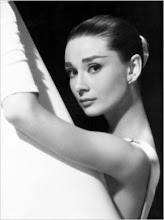 Something completely unexpected happened to me the other day while reading “War and Peace".
Something completely unexpected happened to me the other day while reading “War and Peace". I found myself being amused. Actually, I was more than amused. “War and Peace” abruptly started to seem rather funny.
Three scenes in a row seemed to suggest that maybe I had done a disservice to Count Tolstoy in my interpretation of the book. First, there was a scene were Prince Andrei chased down a French soldier, and after merely nicking him in the arm, captured the terrified man. Although Andrei was troubled by how easily this happened, he was awarded a medal of honor. Next there was a scene where Natasha, trying to pray piously in church, was told to pray for and forgive her enemies. But a moment later, she was instructed to pray for the destruction of her ememies, and good Natasha found herself at a bit of a loss. Next, Pierre, who had developed an interest in numerology, found that when he attached numerical figures to the letters of the alphabet and then spelled out his name, the letters of his name added up to an auspicious number – but only if Pierre not only misspelled his name, but also added an adjective to the front of it (“La Russe”).
Suddenly, it appeared that dour Count Tolstoy had a bit of a sense of humor. Indeed, it suddenly seemed that “War and Peace” had turned into a series of clever, yet dry, Monty Python sketches.
Rather than being a burden, the book abruptly started to move faster. And I found myself snorting or shaking my head as the next 100 pages flew by.
I wonder now, if by thinking of “War and Peace” as a great and serious novel, I had closed my mind to thinking of it as a sly and ironic one.
And I find myself wondering what, in my serious frame of mind, I had missed in the previous 700 pages. I have half a mind to go back to the beginning to give War and Peace a whole fresh look. Well, maybe that's over-stating it a bit. Maybe it’s a quarter of a mind. Or maybe an eighth. No, surely, it’s more of a sixteenth.
Okay, so I may never go back to the beginning. But I am beginning to sense that I might at least enjoy the final 400 pages.
Three scenes in a row seemed to suggest that maybe I had done a disservice to Count Tolstoy in my interpretation of the book. First, there was a scene were Prince Andrei chased down a French soldier, and after merely nicking him in the arm, captured the terrified man. Although Andrei was troubled by how easily this happened, he was awarded a medal of honor. Next there was a scene where Natasha, trying to pray piously in church, was told to pray for and forgive her enemies. But a moment later, she was instructed to pray for the destruction of her ememies, and good Natasha found herself at a bit of a loss. Next, Pierre, who had developed an interest in numerology, found that when he attached numerical figures to the letters of the alphabet and then spelled out his name, the letters of his name added up to an auspicious number – but only if Pierre not only misspelled his name, but also added an adjective to the front of it (“La Russe”).
Suddenly, it appeared that dour Count Tolstoy had a bit of a sense of humor. Indeed, it suddenly seemed that “War and Peace” had turned into a series of clever, yet dry, Monty Python sketches.
Rather than being a burden, the book abruptly started to move faster. And I found myself snorting or shaking my head as the next 100 pages flew by.
I wonder now, if by thinking of “War and Peace” as a great and serious novel, I had closed my mind to thinking of it as a sly and ironic one.
And I find myself wondering what, in my serious frame of mind, I had missed in the previous 700 pages. I have half a mind to go back to the beginning to give War and Peace a whole fresh look. Well, maybe that's over-stating it a bit. Maybe it’s a quarter of a mind. Or maybe an eighth. No, surely, it’s more of a sixteenth.
Okay, so I may never go back to the beginning. But I am beginning to sense that I might at least enjoy the final 400 pages.











No comments:
Post a Comment